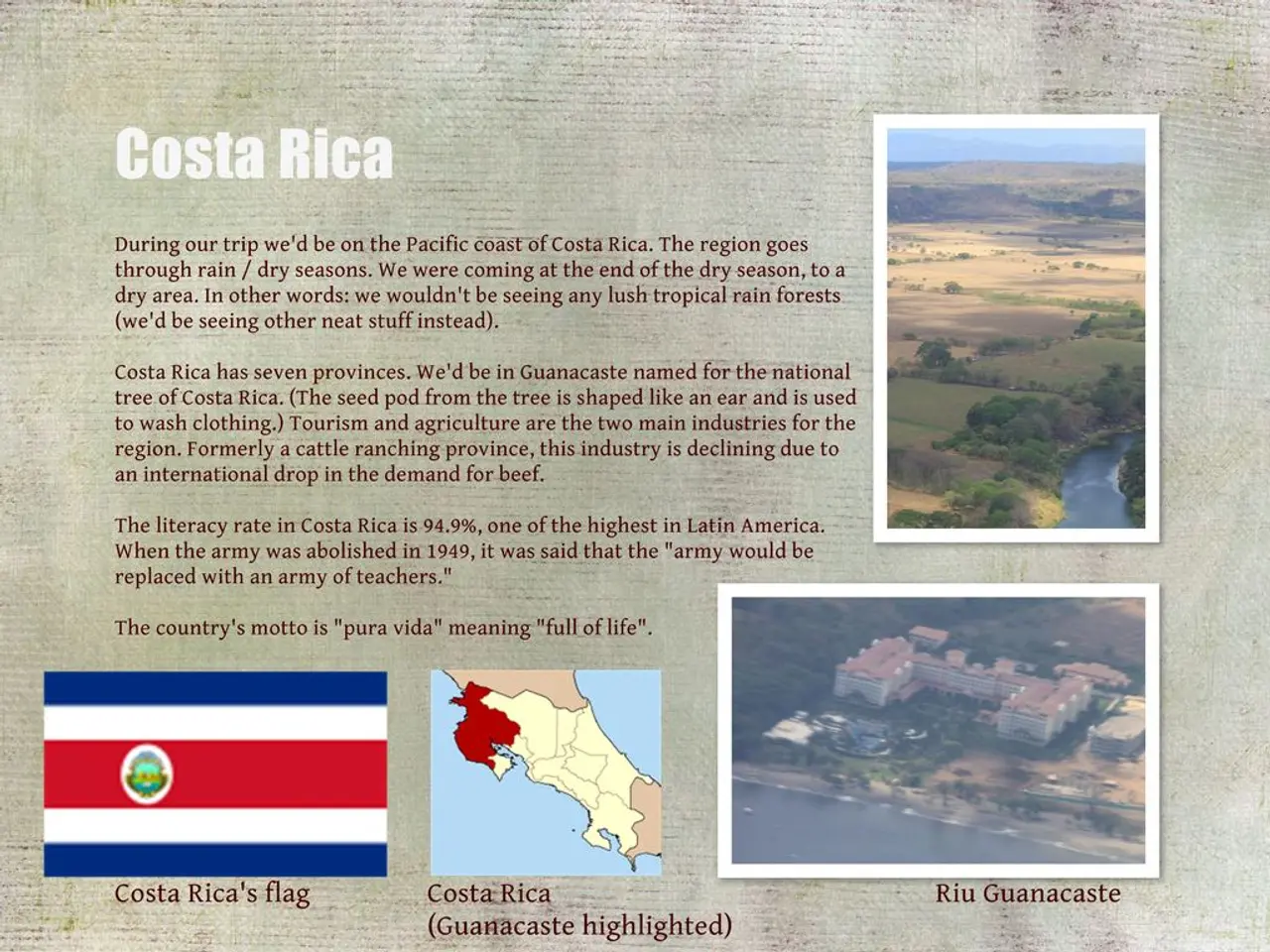Sanitized and Refreshed Version
Increasing Sea Levels Prompt Thousands from Tuvalu to Pursue a Relocation to Australia
In a world where sea levels keep rising, small island nations, like Tuvalu, unfortunately face an uncertain future. Situated in the west-central Pacific Ocean, this threatened archipelago has a population of approximately 11,000 people, who are part of the storm of migration heading towards Australia.
Australia, acknowledging the bleak reality of climate change, initiated special visas to welcome Tuvalu citizens in response to the impact of climate change, marking the world's first official move of this kind. The scheme-known as the bilateral treaty between Australia and Tuvalu-offers 280 visas annually, with the first batch being available on June 16, 2023. Over 3,000 Tuvaluans applied for these visas, demonstrating the growing desperation.
Successful applicants should expect the visa lottery results by the end of July, with the initial migrants arriving in Australia by year's end. Upon arrival, visa holders will have immediate access to various benefits, including education, Medicare, the National Disability Insurance Scheme (NDIS), family tax benefits, a childcare subsidy, and youth allowance.
"Climate change is a pressing concern for climate-vulnerable countries and people, particularly those in the Pacific region," Australia's foreign affairs department stated.
Tuvalu is a low-lying country, with an average elevation of less than 10 feet (3 meters). Several studies suggest that many of its islands will face uninhabitability due to flooding, saltwater intrusion, storm surge, and erosion before the end of the century, according to the World Bank. NASA researchers even calculated that Tuvalu and other Pacific Island nations will experience at least 6 inches (15 centimeters) of sea level rise in the next 30 years alone.
Climate change has already begun to take its toll on Tuvalu. Saltwater has started contaminating the country's farmland and groundwater, leaving citizens to rely on rainwater collection tanks and central raised gardens. This increased vulnerability to droughts, water shortages, and disease outbreaks has been reported by UNICEF Australia.
Tuvalu has undertaken various initiatives, such as the Tuvalu Coastal Adaptation Project (TCAP), to combat sea level rise. While improvements in coastal hazard monitoring, land reclamations, and coastal protections for outer islands have been seen, numerous challenges persist.
"I experience the realities of climate change," Grace Malie, a Tuvalu citizen and youth delegate for the Rising Nations Initiative, expressed. "The whole population of Tuvalu is affected by this."
Funafuti, Tuvalu's capital and its most populous atoll, has already experienced a sea-level rise of about 5.5 inches (14 centimeters) over the past three decades, according to NASA's Sea Level Change Team. By 2050, scientists anticipate half of its area will submerge during daily tides.
As Tuvalu grapples with the daunting prospect of disappearing beneath the waves, the government is preparing for the future by creating a digital backup of the country. The project aims to save Tuvalu's land, history, culture, and move all governmental functions into a virtual space.
Unlike Tuvalu, Pacific Islands, despite accounting for just 0.02% of global emissions, experience disproportionate climate risks. As more Tuvaluans find the courage to leave their homeland, citizens of numerous other island nations will begin to brace for the same fate.
- The challenges faced by Tuvalu, a low-lying island nation in the Pacific Ocean, are a testament to the widespread impacts of climate change, with NASA predicting a sea level rise of at least 6 inches (15 centimeters) for Tuvalu and other Pacific Island nations within the next 30 years.
- Climate change has brought about a dire situation for Tuvalu, with saltwater contaminating farmland and groundwater, leading to increased vulnerability to droughts, water shortages, and disease outbreaks, as reported by UNICEF Australia.
- The Australian government, recognizing the severity of the situation, has taken the world's first official step by offering special visas to Tuvalu citizens in response to the impact of climate change, with the first 280 visas available on June 16, 2023.
4.resource-strapped island nations like Tuvalu are employing various initiatives to combat sea level rise, such as the Tuvalu Coastal Adaptation Project (TCAP), but challenges persist due to the grim reality of climate change.
- As climate change policies and legislation evolve, countries across the globe and even in the realm of science, AI, and general news will grapple with the pressing concern of climate change, especially for the vulnerable Pacific region.
- The digital backup project, which aims to save Tuvalu's land, history, culture, and move all governmental functions into a virtual space, underscores the innovative solutions being explored by these climate-vulnerable nations to preserve their identity in the face of a changing climate and potential displacement.






